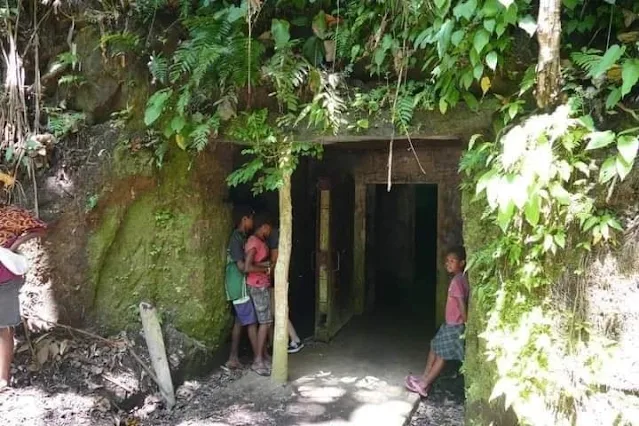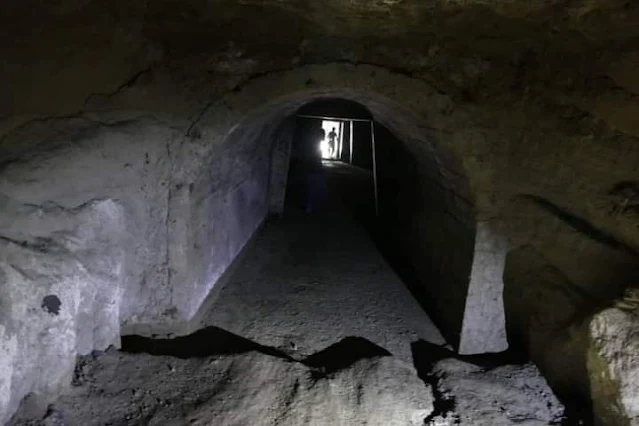The WW II Japanese underground hospital at Gunanur Plantation.
During World War II, the Japanese military established an underground hospital at the Gunanur plantation in Rabaul, Papua New Guinea. This hospital, also known as the "Tunnel Hill Hospital," was a strategic and well-hidden medical facility designed to provide care for injured Japanese soldiers during the war.
The construction of the underground hospital began in early 1942 when the Japanese occupied Rabaul following their successful invasion of the island. The location of the hospital at Gunanur plantation was chosen due to its remote and secluded nature, making it less vulnerable to enemy attacks. The hospital was built using forced labor, mainly consisting of local Papua New Guineans and Korean prisoners of war.
The hospital complex was constructed with multiple interconnected tunnels and chambers dug into the hillside, providing protection from both enemy bombings and the harsh tropical climate. The underground facility included surgical wards, medical stores, living quarters for staff, and even a morgue. The tunnels were equipped with electricity, medical equipment, and supplies to ensure the proper treatment of wounded soldiers.
Throughout the war, the Tunnel Hill Hospital played a crucial role in providing medical care to Japanese troops fighting in the Pacific region. It was staffed by skilled Japanese medical personnel, including doctors, nurses, and orderlies. The hospital treated a wide range of injuries, including wounds from combat, tropical diseases, and other medical conditions.
Despite being well-hidden and fortified, the hospital was not immune to Allied attacks. The surrounding area experienced heavy bombing raids by Allied forces, which damaged parts of the hospital and disrupted its operations. However, the Japanese military personnel stationed at the hospital worked tirelessly to repair the damage and continue providing care to the wounded.
After the war ended in 1945, the underground hospital at Gunanur plantation was abandoned by the Japanese military. Over the years, the tunnels have deteriorated and become overgrown by vegetation, but remnants of the hospital complex can still be seen today.
The Gunanur plantation underground hospital reflects the harsh realities of war and the sacrifices made by both Allied and Japanese forces during World War II in the Pacific.
The history of the Japanese underground hospital at Gunanur plantation in Rabaul, Papua New Guinea, highlights the strategic importance of medical facilities during wartime and the resilience of those who worked in such challenging environments.
If you're ever in Rabaul, be sure to visit the Gunanur Plantation and learn more about this fascinating piece of history.
For Bookings Contact;
WhatsApp 📱 +675 7115 6650 or
Email 📧 rabaultourspng@gmail.com










Comments
Post a Comment